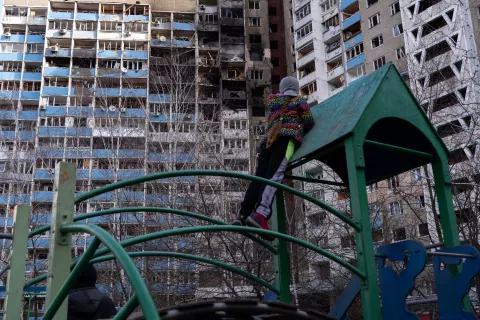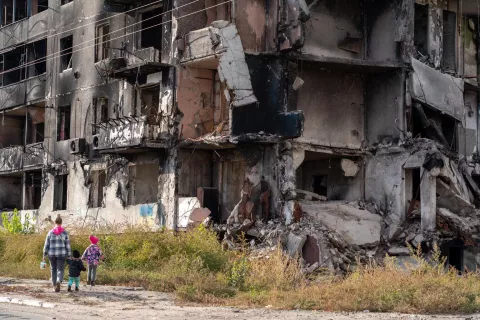“I didn't know if he was alive”: Former child soldier reunited with family in South Sudan
19,000 children have been recruited into armed groups since the start of the conflict
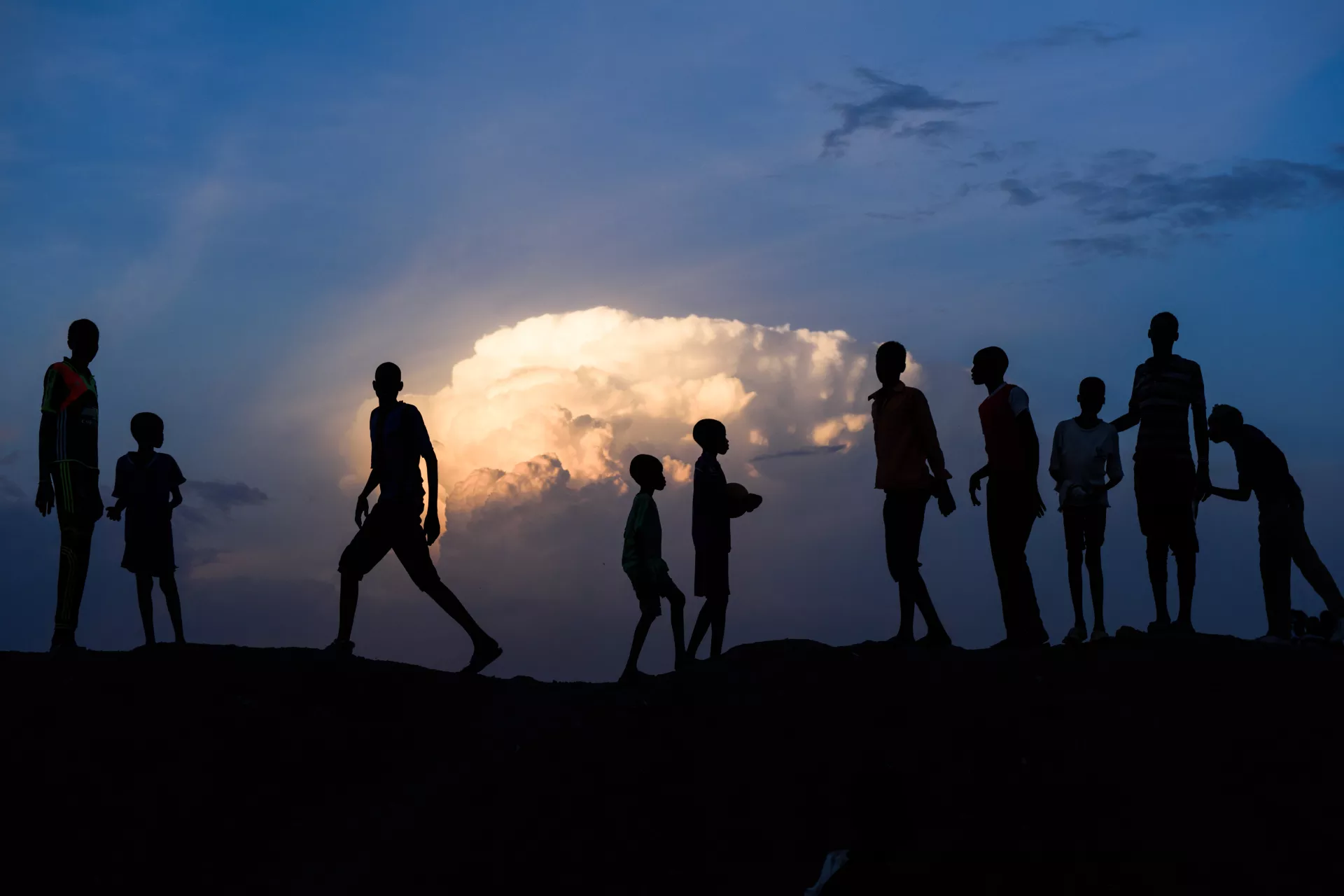
A boy was rescued by aid workers after being forced to fight with an armed group in South Sudan. Then the search for his family began.
BENTIU, South Sudan – The boy* felt almost safe. His uniform of the last three years had been replaced by jeans and a bright orange football shirt. He stepped off the helicopter and took in the commotion at the airstrip, overwhelmed.
The boy was rescued by aid workers from a military outpost last year, and was placed in the care of UNICEF protection officer Franka David. The search for his family then began. David took the boy to a foster family, where he stayed while his relatives, if living, were traced.
David said the boy, who was quiet and shy, showed signs of trauma. “He’s still tired, and he’s hungry.” He was about to have his first home-cooked meal in years. The fact he survived for so long on the scorched battlefield was a miracle.
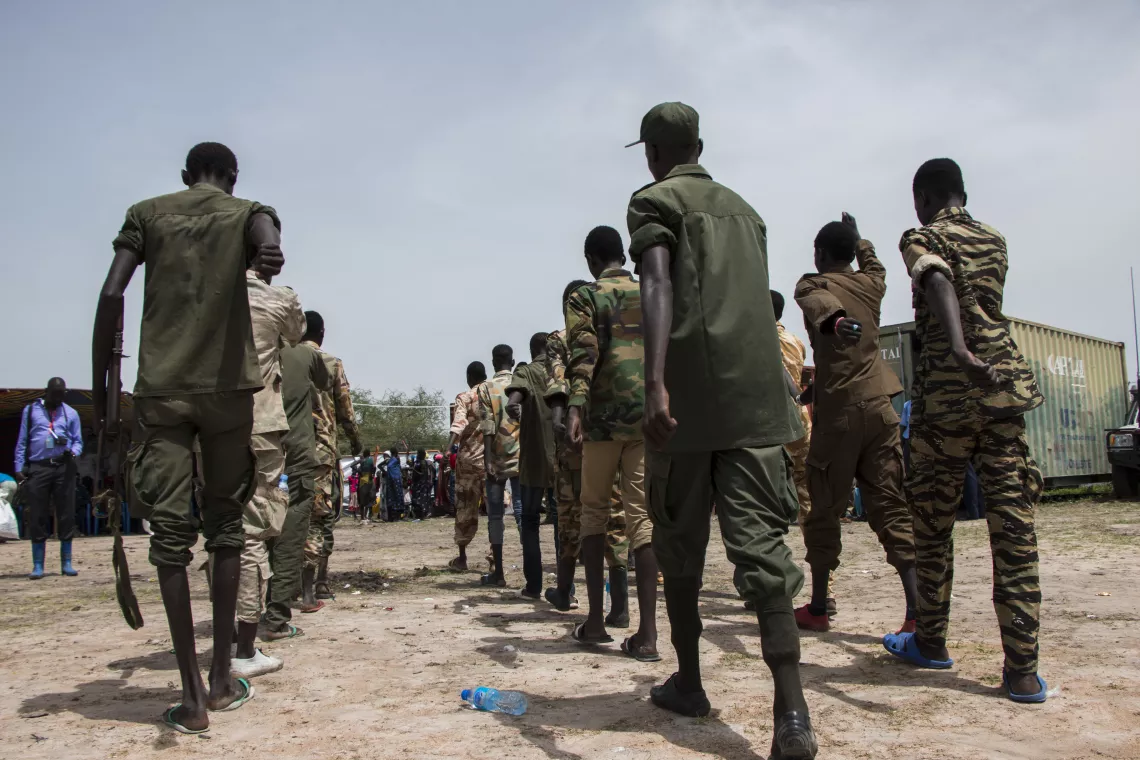
Children forced into armed groups
The boy is evidence of the horrors committed in Bentiu, a state capital in the oil-rich north of South Sudan, and the backdrop to some of the worst fighting since the civil war began in 2013.
Military recruitment is one of the greatest risks for children in the country. Some 19,000 children are estimated to have been recruited into armed groups where they are systematically mistreated.
“They are overworked. And they will be walking through the bush the whole night,” David said. “If they get sleepy, the soldiers will tell them to fetch water and cook. If they become tired, they will be punished. That's why most of them are scared. They are beaten, there is no food. If they are sick, no one treats them. No clothing, no education.”
During the past four and a half years, UNICEF has overseen the release of over 2,600 children from armed groups across the country, helping them to return to their families and communities.
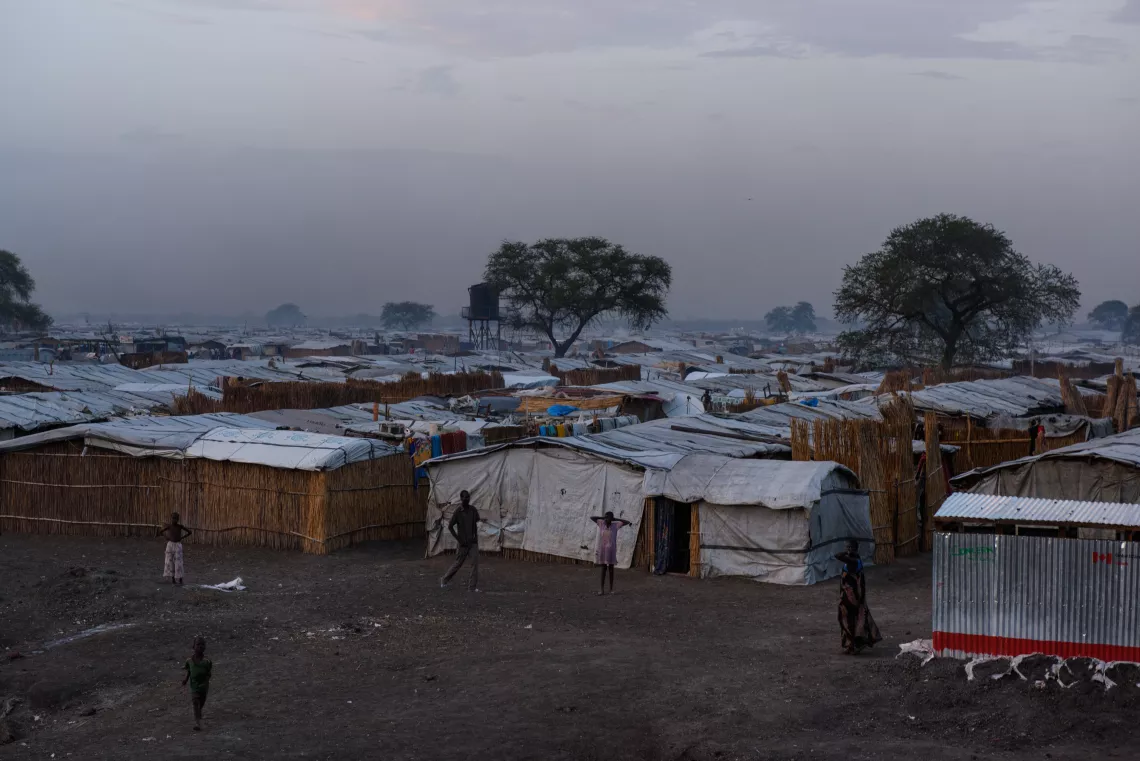
Mass displacement
Reuniting children with their families is further complicated by the mass displacement caused by the conflict. In and around Bentiu, the bloodshed has driven thousands from their homes to the sanctuary of an enormous camp, protected by razor wire and UN peacekeepers.
The Protection of Civilians site, or 'PoC', is roughly one square kilometre of red dirt on an arid, heat-soaked plain, and home to over 112,000 people. A thick coat of dust gives way to deep mud as the seasons come and go. The shelters are arranged in long rows, separated by dirt roads and drainage ditches.
A kilometre from the site, Bentiu township has changed hands between government and opposition troops several times during the conflict. Soldiers walk the tense streets, buildings are pock-marked with bullet holes and tanks sit quietly at strategic locations.
UNICEF is working both in and outside the site to support family reunification and provide psychosocial support. “When there is conflict, children are separated, they are exposed to risk. They are at their most vulnerable,” says David. “Children have a right to be at home and be cared for properly.”
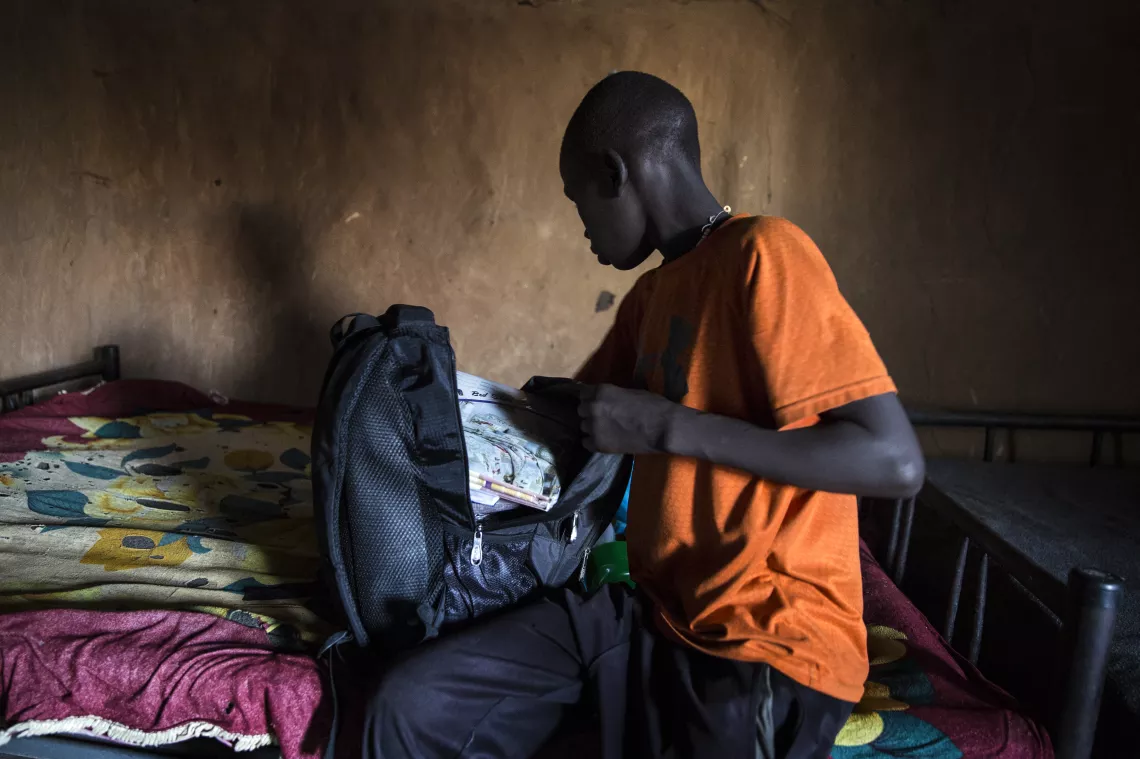
A family, reunited
The child from the airstrip spent just one night with the foster family before relatives were traced. His uncle, who helped raise the boy after his father died years earlier, was living in the PoC site along with the boy’s four siblings.
He learned from his uncle that his mother had died just a few months earlier, shortly after giving birth. His aunt, also in the camp, was breastfeeding and caring for the baby.
“I didn't know if he was alive,” the uncle said, overcome with joy. He explained that the boy had disappeared three years earlier, after leaving the site at night with friends to walk into Bentiu town. The family searched for him but found no trace. He had been taken by a military unit.
The shy boy finally knew he was safe. David gave him a change of clothes and a school bag containing exercise books and pencils. Caseworkers would continue to pay him and his family regular visits, to make sure that he received the psychosocial and educational support he needed.
But the full story of his time in the military and its longer term effects would remain unknown.
Since the start of the conflict in 2013, UNICEF has helped release over 2,600 children from armed groups, and supported their reintegration. With partners, UNICEF helps trace and reunify children with their families, provides psychosocial support, access to education, and vocational training and economic opportunities to released children. In targeted areas where child recruitment is known, UNICEF works to ensure that communities have access to safe water throughout the year to reduce population movement, as seasonal migration influences access to education and often contributes to inter-communal conflict.
In 2018, more than 800 children have been released from armed groups in South Sudan, including 210 who were released in Pibor on 17 May.
*name withheld to protect identity

